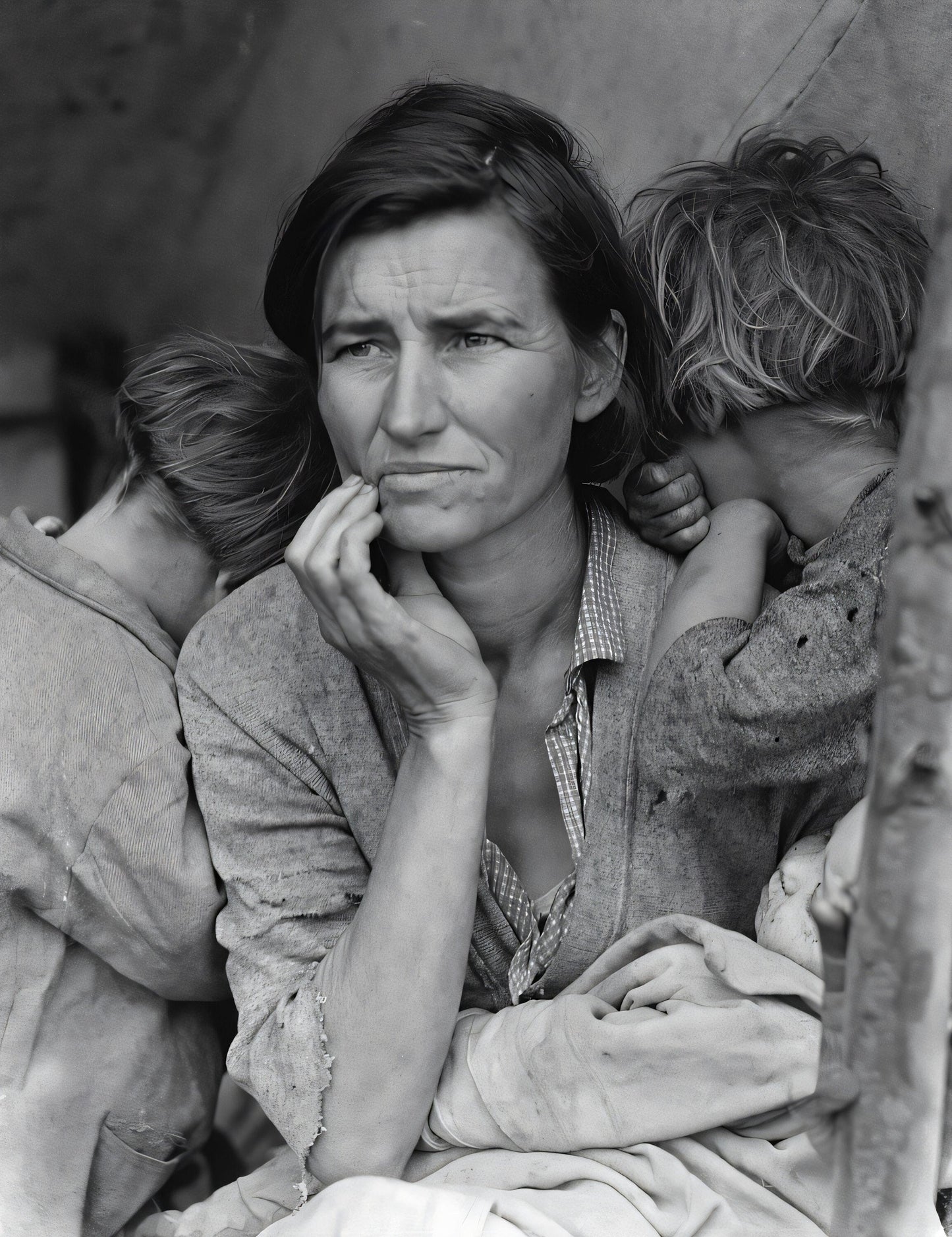intoxArtStudio
Migrant Mother - Dorothea Lange - Canvas, Metal, Acrylic, Framed, or Giclee Print
Migrant Mother - Dorothea Lange - Canvas, Metal, Acrylic, Framed, or Giclee Print
Couldn't load pickup availability
Free Shipping! Includes All Mounting Hardware!
Printing Options:
Canvas: Printed on textured fabric for a classic, artistic feel. Stretched over a frame, it's ready to hang.
Metal: Printed directly on aluminum, offering a sleek, modern look with vibrant colors and a durable finish.
Acrylic: Printed on a clear acrylic surface for a high-gloss, contemporary appearance with sharp, vivid details.
Giclee Quality: High-resolution inkjet print on fine art paper, known for its exceptional detail and color accuracy. Museum Quality.
Framed (Black, White, or Walnut - Message for special requests): Artwork mounted in your choice of frame color for a finished, elegant presentation.
Description: In 1936, Dorothea Lange, a photographer employed by the U.S. government's Farm Security Administration (FSA) program, captured a now-iconic photograph. The FSA was established during the Great Depression to raise awareness of and provide aid to impoverished farmers. In Nipomo, California, Lange encountered Florence Owens Thompson and her children, who were living in a camp filled with field workers devastated by the failure of the pea crops. Lange approached Thompson and made five exposures, working closer and closer from the same direction to capture the perfect shot. The resulting photograph, known as "Migrant Mother," became a powerful symbol of the plight of migrant farm workers during the Great Depression.
According to Lange, Thompson and her children were living off of frozen vegetables from the fields and wild birds that the children caught. The pea crop had failed, leaving them without work. Despite this, Thompson and her family were unable to leave the area, as she had just sold the tires from her car to buy food. However, years later, Thompson contested Lange's account of their encounter. In the 1970s, Thompson stated that she and Lange did not speak to each other, and she did not sell the tires from her car. She suggested that Lange may have confused her with another farmer or embellished her story for a better narrative. Despite the controversy, "Migrant Mother" remains a powerful and moving portrayal of the struggles faced by impoverished migrant workers during the Great Depression.
Share



